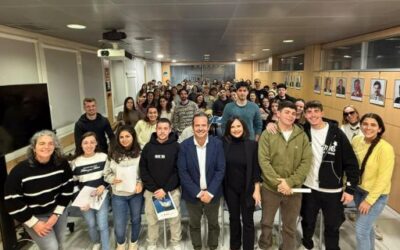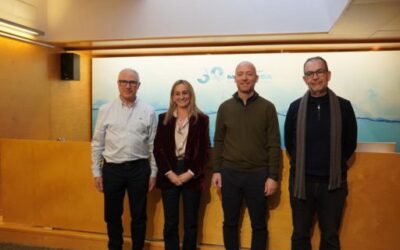Mallorca Island Council launches a new digital procedure for the exchange of tourist accommodation places
by Rosa María Cuerda Riutort | Feb 9, 2026 | Actualidad, Current affairs, Featured, Interview, Portada, Post, Revista Lloseta, Thursday Daily Bulletin, Tradition
The Consell de Mallorca, through its Department of Tourism, has introduced a new online procedure aimed at streamlining the exchange of tourist accommodation places between private individuals, specifically for properties used for tourist rentals. This initiative...
Agriculture launches a campaign to strengthen the global positioning of Spanish food products
by David Arreza | Feb 9, 2026 | Actualidad, Current affairs, Featured, Interview, Portada, Post, Revista Lloseta, Thursday Daily Bulletin, Tradition
The Ministerio de Agricultura, Pesca y Alimentación has announced the launch of a new international campaign aimed at enhancing the presence of Spanish food products in high-potential markets such as India, Mercosur, and Indonesia. The initiative forms part of a...
The youth activities programme was presented to more than 80 “Joves a la Neu” participants
by Redacción | Feb 9, 2026 | Actualidad, Current affairs, Featured, Interview, Portada, Post, Revista Lloseta, Thursday Daily Bulletin, Tradition
More than 80 young people took part in an information session where the youth activities programme planned for 2026 was presented within the framework of “Joves a la Neu”. Held before the trips to Andorra, the meeting provided key details about the journey and...
Mallorca takes part in the presentation of the Blai Bonet Year at the Government of Catalonia
by Rosa María Cuerda Riutort | Feb 9, 2026 | Actualidad, Current affairs, Featured, Interview, Portada, Post, Revista Lloseta, Thursday Daily Bulletin, Tradition
An institutional delegation from Mallorca attended the official presentation of the literary commemorations promoted by the Institució de les Lletres Catalanes, held at the headquarters of the Generalitat de Catalunya, which includes the Blai Bonet Year 2026. The...
PortsIB approves the extension of the contract for the maintenance of mooring systems in the ports of western Mallorca
by David Arreza | Feb 9, 2026 | Actualidad, Current affairs, Featured, Interview, Portada, Post, Revista Lloseta, Thursday Daily Bulletin, Tradition
Ports de les Illes Balears (PortsIB) has approved the extension of the service contract for the comprehensive maintenance of mooring systems and underwater structures in the ports under direct management in the western Mallorca area. This decision ensures the...
Ibiza launches the Amateur Theatre Season with five performances across the island
by Redacción | Feb 9, 2026 | Actualidad, Current affairs, Featured, Interview, Portada, Post, Revista Lloseta, Thursday Daily Bulletin, Tradition
Ibiza is launching a new Amateur Theatre Season aimed at supporting local performing arts and enhancing the visibility of amateur theatre groups across the island. The initiative provides companies with an organised framework to present their creative work and bring...
Der Inselrat von Mallorca führt ein neues digitales Verfahren für den Austausch von Plätzen für touristische Unterkünfte ein
by Rosa María Cuerda Riutort | Feb 9, 2026 | Actualidad, Current affairs, Featured, Interview, Portada, Post, Revista Lloseta, Thursday Daily Bulletin, Tradition
Der Consell de Mallorca hat über sein Tourismusdezernat ein neues Online-Verfahren eingeführt, das den Austausch von Plätzen für touristische Unterkünfte zwischen Privatpersonen vereinfachen soll, insbesondere für Immobilien, die für touristische Vermietungen genutzt...
Landwirtschaft kündigt Kampagne zur Stärkung der Präsenz spanischer Lebensmittel in strategischen Märkten an
by David Arreza | Feb 9, 2026 | Actualidad, Current affairs, Featured, Interview, Portada, Post, Revista Lloseta, Thursday Daily Bulletin, Tradition
Das Ministerium für Landwirtschaft, Fischerei und Ernährung hat den Start einer neuen internationalen Kampagne angekündigt, die darauf abzielt, spanische Lebensmittel in Märkten mit hohem Potenzial wie Indien, dem Mercosur und Indonesien zu positionieren. Die...
Minimum Living Income reaches nearly 800,000 households and supports close to one million children
by Rosa María Cuerda Riutort | Feb 8, 2026 | Actualidad, Current affairs, Featured, Interview, Portada, Post, Revista Lloseta, Thursday Daily Bulletin, Tradition
Spain’s Minimum Living Income (IMV) scheme reached 799,553 households in December, providing support to over 2.4 million people, according to the latest figures released by the Ministry of Inclusion, Social Security and Migration. Nearly one million of the...
The Balearic Islands update regulations to strengthen security in public buildings
by David Arreza | Feb 8, 2026 | Actualidad, Current affairs, Featured, Interview, Portada, Post, Revista Lloseta, Thursday Daily Bulletin, Tradition
The Balearic Islands have approved a new regulatory framework to modernise the service responsible for protecting and monitoring public buildings and facilities, aligning it with current security risks, technological advances, and updated legal standards. The new...
Menorca strengthens social support with over €300,000 for inclusion and family assistance programs
by Redacción | Feb 8, 2026 | Actualidad, Current affairs, Featured, Interview, Portada, Post, Revista Lloseta, Thursday Daily Bulletin, Tradition
The Menorca Island Council and Càritas Diocesana de Menorca have signed two cooperation agreements aimed at enhancing social support for people and families facing vulnerability and social exclusion, with a total investment of €302,500. The funding will support three...
Spain Sets Historic Asylum Record: Over 160,000 Cases Resolved in 2025
by Rosa María Cuerda Riutort | Feb 8, 2026 | Actualidad, Current affairs, Featured, Interview, Portada, Post, Revista Lloseta, Thursday Daily Bulletin, Tradition
Spain has achieved a record number of asylum and international protection decisions in 2025, with more than 160,000 cases processed and concluded by the national asylum authority over the course of the year. This figure represents the largest volume of resolved asylum...
Our writters
Inés Bennasar
Inés Bennasar helps those most in need, from Bunyola. This mother of 14 cats, 1 dog, 4 sheep and 1 pig, will be in charge of giving voice to all those little balls of love, who have not been so lucky. This way we will know that second chances exist and we will put emphasis on looking for them.
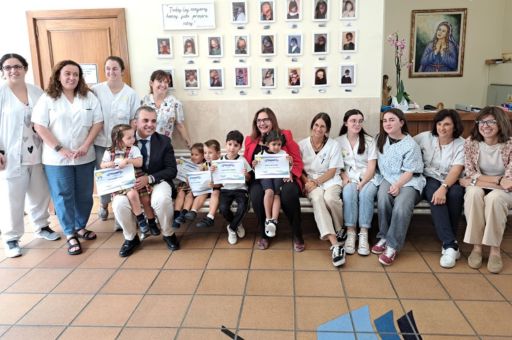
The Pilot Plan for Childhood Immunisation against the flu has now been completed in 16 schools
The councillor for Health, Manuela García, and the councillor for Education, Antoni Vera, attended the vaccination of 237 children at the Santa Mónica school in Palma, 65% of those vaccinated.
The pilot school immunisation plan continues, with 2,900 students born between 2019 and 2021 to be vaccinated.
The councillor for Health, Manuela García, accompanied by the councillor for Education, Antoni Vera, went today to the Santa Mónica school in Palma to show her support for the flu vaccination of 237 children in the second cycle of infant education, 65% of the 365 children enrolled in the school at these educational levels.
TDB keeps you informed. Follow us on Facebook, Twitter and Instagram
The Pilot Plan for Childhood Immunisation against the flu has now been completed in 16 schools
The heads of Health and Education were accompanied during their visit to the Santa Mónica school by the director of Primary Care Nursing, Victòria Pascual, and Toñi Tarongí, pedagogical director of Infant and Primary Education, among other authorities.
Manuela García welcomed the high percentage of pupils whose parents gave their permission for them to be vaccinated and thanked them for their responsible attitude, reminding them that vaccination is recommended for this group of healthy children because the flu does not cause the most common symptoms of the epidemic disease, such as fever and fatigue, among them. ‘Young children who contract the flu can have serious complications such as pneumonia, asthma attacks or otitis,’ he said.
Vaccination is also recommended for this group even though the lethality rate among children under 15 years of age is very low. Ninety-five per cent of children who die from the disease are under five years of age.
Moreover, this age group has the second highest rate of hospitalisation and ICU admission due to influenza after the elderly. Not to mention the role that these children play in transmitting the flu in their homes and with their close relatives, sometimes elderly and fragile people in whom contagion can have tragic consequences.
These children under five years of age have been immunised as part of the pilot child vaccination plan, which was launched in coordination with the Ministries of Health and Education on Monday 14 October and will continue until 14 November. In this pilot scheme, 2,900 schoolchildren born between 2019 and 2021 from 24 public and state schools on the islands, as well as one private school, will be able to be immunised in their school. Eleven schools in Mallorca, eight in Ibiza and Formentera and five in Menorca are participating in this plan. This pilot plan has already been completed in 16 schools.
The acceptance rates for this vaccination at school have been as follows, by island: in Mallorca, 52%; 40% in Menorca; 32.3% in Ibiza and 50% in Formentera.
The children participating in this pilot plan are immunised in complete safety. Nurses from the health centres closest to the schools come to the classrooms with a first-aid kit to treat any possible adverse effects of the vaccines and remain there for up to half an hour after the last child has been immunised to prevent them from occurring. Children with severe egg allergies or intolerances or those with significant immunodeficiency will be excluded from this school vaccination.
Children aged 2 years to 4 years and 11 months have been given a convenient and painless intranasal flu vaccine. For the youngest children, from six months to two years of age, an inactivated injectable vaccine will be administered.

Water reserves in the Balearic Islands increase to 46% during September
The Artà Demand Unit goes on alert, activating the measures of the Special Action Plan for Situations of Alert and Possible Drought.
Water reserves in the Balearic Islands have increased to 46% during September, an increase of 3 percentage points over the previous month, but still 6 points less than in the same period last year, when they stood at 52%. This situation continues to call for rigorous monitoring and responsible management of available resources.
TDB keeps you informed. Follow us on Facebook, Twitter and Instagram
Water reserves in the Balearic Islands increase to 46% during September
This month there has been a change of scenario: the Artà Demand Unit (UD) has gone on alert. Thus, the UD of Artà, es Pla and Formentera are currently in the alert scenario, activating the measures established in the Special Plan of Actions in Situations of Alert and Possible Drought. These measures include the limitation of garden irrigation, street cleaning, ornamental uses and beach showers by the managing entities without connection to desalination plants, as well as restrictions on water supply in rural areas and the promotion of awareness campaigns by the administrations.
Meanwhile, 82.2% of the Balearic Islands territory, comprising the UD of Menorca, Manacor-Felanitx, Migjorn, Palma-Alcúdia, Tramuntana Norte, Tramuntana Sur and Eivissa, remains in pre-alert.
About the evolution of bookings by Demand Unit, four DUs have registered a decrease: Artà, Manacor-Felanitx, Tramuntana Sur and Formentera, while three DUs have experienced an increase: Menorca, Migjorn and Tramuntana Norte. The UDs of es Pla, Palma-Alcúdia and Eivissa have remained stable. The general index for the demarcation is 0.365, a slight increase compared to the previous month, but lower than last year (0.429) and two years ago (0.438).
As for the percentages of bookings by island, Mallorca has risen from 43% to 47%, Menorca has increased from 39% to 44%, and Eivissa has increased slightly from 32% to 33%. Despite this improvement, the overall situation in the Balearic Islands is still less favourable than it was a year ago.
According to AEMET data, September was a normal month in terms of rainfall, with an average of 48.8 l/m² compared to the usual 61.2 l/m². By islands, Menorca recorded 48.1 l/m² (vs. 56.9 l/m²), Mallorca 49.0 l/m² (vs. 62.7 l/m²) and Eivissa 55.3 l/m² (vs. 60.1 l/m²). In contrast, Formentera had a dry month, with only 22.2 l/m² (vs. 42.6 l/m²).
The percentage of accumulated annual rainfall in the Balearics stands at 76%, with Mallorca at 77%, Menorca at 87% and the Pitiusas at 56%. In terms of temperatures, the month of September has been considered normal, with an average temperature of 22.1ºC and an anomaly of -0.2ºC.
Considering the current situation and the recorded rainfall, it is expected that stocks may continue to increase during the month of October, with no significant changes in the scenario expected.
Ramón Planes Socies
ESCAC student in Terrassa will teach us how to tell stories from any of the disciplines taught at ESCAC: directing, art direction, documentary, screenwriting, editing, production, sound design or visual effects production.
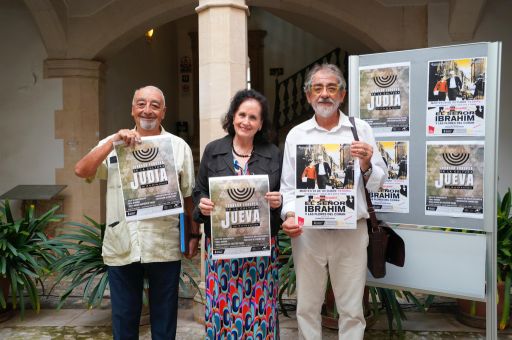
Can Bordils will be one of the main venues for the activities of the European Day of Youth Culture
14th October 2024
The programme, organised by the Jewish Community of the Balearic Islands with the support of the City Council, will begin this Tuesday with a conference by the biblical scholar and theologian Jaime Vázquez on the Dead Sea manuscripts.
Palma, 14th October 2024. This Monday, the Can Bordils premises, the headquarters of the Arxiu General de Palma, hosted the presentation of the European Youth Culture Day, which will be held from the 15th to the 29th of October, organised by the Comunitat Jueva de les Illes Balears and with the collaboration of the Ajuntament de Palma.
TDB keeps you informed. Follow us on Facebook, Twitter and Instagram
Can Bordils will be one of the main venues for the activities of the European Day of Youth Culture
The programme includes different activities to disseminate some of the most deeply-rooted historical and cultural aspects of the Jewish legacy, through lectures, round tables, film screenings, guided tours and musical concerts.
On behalf of the City Council, the Director General of Heritage and Interpretation of the City, Pilar Ribal, attended the informative meeting. Also present were the president of the Comunitat Jueva, Ariel Girondi, and its vice-president, Miquel Segura.
During his speech, Ribal stressed that this is ‘an essential date with the history of Palma’, where, he said, the Jewish imprint ‘has made a decisive contribution to the evolution of the capital of the Balearic Islands, which is indebted to this tradition and culture, its rich heritage and values that have been transmitted and strengthened from generation to generation’.
Can Bordils is one of the main stages of the programme of the European Day of Youth Culture, hosting three activities, all of which will begin at 19:00.
On Tuesday, the conference ‘The Dead Sea Scrolls. The story of their discovery’, which will be given by the biblical scholar, theologian and journalist Jaime Vázquez Allegue.
This speaker has spent more than 25 years studying these manuscripts, which were found in 1947 in the desert of Judah, constituting, according to experts, the greatest archaeological discovery of the 20th century.
In fact, the documents that the speaker will discuss contain the oldest texts of the Hebrew bible and a large collection of writings that outline the social, political and religious context of Jerusalem.
Jaime Vázquez is a tenured professor at CESAG and holds a PhD in Biblical Theology from the Pontifical University of Salamanca.
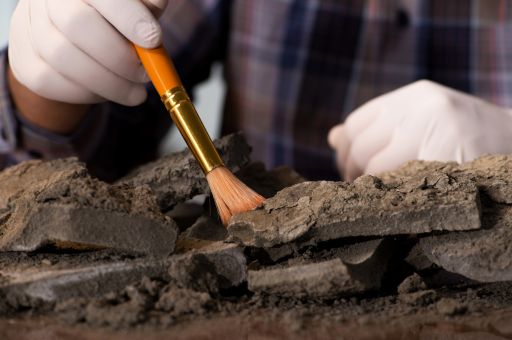
The Consell de Mallorca subsidises a total of 10 archaeological research projects over three years with almost 700,000 euros
The initiative includes projects by universities, town councils and private individuals that will promote studies on the chronology and practices of the past.
The Consell de Mallorca is subsidising a total of 10 archaeological research projects over three years with a total of 692,415 euros. The aim is to promote scientific archaeological research on the island and contribute to the conservation and maintenance of the island’s historical heritage.
The vice-president of the Consell de Mallorca and councillor of Culture and Heritage, Antònia Roca, explained that the selected projects contemplate different lines of research, including the analysis of ancient structures, studies of chronology and functionality, and studies on past fauna and flora. The subsidy will be distributed as follows: 140,641 euros in 2024, 276,889 euros in 2025 and 274,885 euros in 2026.
TDB keeps you informed. Follow us on Facebook, Twitter and Instagram
The Consell de Mallorca subsidises a total of 10 archaeological research projects over three years with almost 700,000 euros
The grant programme includes projects promoted by universities, research centres, town councils and other entities. ‘This diversity reflects the richness and transversality of archaeology as a fundamental discipline for society,’ says Roca. He also stresses that ‘with this initiative, we reaffirm our commitment to the preservation of Mallorca’s cultural heritage and support researchers who contribute to the understanding of the island’s history and identity’.
It is important to note that in 2024 the Consell de Mallorca has allocated a total of 565,000 euros to seven municipalities on the island to acquire archaeological sites: Manacor, Alcúdia, Petra, Selva, Santa Margalida, Llubí and Sencelles will thus be able to incorporate spaces of great historical and cultural value into their public heritage.
Visit to the Es Turassot archaeological site
The Vice President of the Consell de Mallorca and Councillor of Culture and Heritage, Antònia Roca, visited the Es Turassot site in Costitx, along with the Mayor of Costitx, Antoni Salas, one of the subsidised projects that received the highest scores for its quality, suitability and technical, temporal and economic viability.
In this navetas settlement, the council will carry out excavations to analyse the domestic and economic practices of the period, as well as the chronology and functionality of its structures. Roca stresses that ‘this project will provide a better understanding of the spatial organisation, economic activities and cultural changes in the settlements of the Pla de Mallorca, which will contribute to scientific knowledge and the dissemination of the island’s archaeological heritage’.
Salas stresses that ‘the navetas settlement of Es Turassot is a unique opportunity to enhance the historical heritage of Costitx, as it is an exceptional testimony to understanding how the communities of the Pla de Mallorca lived and interacted millennia ago’.
Beneficiaries
The beneficiaries of these 10 projects are universities and research centres, local councils and individuals. Specifically, the beneficiary universities and research centres are the UIB, which will carry out two studies: one on the Indigenous communities of Mallorca during the Iron Age and another on the Closos de Can Gaià and its surroundings; the IMEDEA, which will study the chronology and functionality of Mallorcan sanctuaries; the Instituto de Ciencias del Patrimonio-CSIC, which will carry out an interdisciplinary research project on the exploitation and use of copper in the prehistory of Mallorca; the Institut Català de Paleontologia Miquel Crusafont (ICP), which will study the island’s early ecosystems; and finally, the University of Valencia, which will re-excavate the Sec shipwreck to understand commercial and technological aspects.
As for local councils, the beneficiaries are Costitx Town Council, which will carry out the excavation and study of the set of navetas of Es Turassot, from the Talayotic period, to analyse domestic and economic practices; Montuïri Town Council, which will investigate the transformations of the Son Fornés settlement after the Talayotic period; and Santanyí Town Council, which will carry out a study on fortifications and social changes in Mallorcan settlements in the Second Iron Age.
Finally, as far as private individuals are concerned, there is only one beneficiary: the Sóller Botanical Garden Foundation – Balearic Museum of Natural Sciences, which will carry out a study on fauna and flora linked to extreme climatic periods in the Mediterranean.

Minimum Vital Income reaches nearly 2.3 million people in July
In July 2025, the Minimum Vital Income (IMV) reached 2.3 million people across 752,469 households, including 129,655 single-parent families. In more than two-thirds of these households, there are minors, who account for 41.2% of all beneficiaries (947,903 children and adolescents).
The average monthly payment per household was €519.16, with a total payout of €426.3 million in July. Compared to July 2024, there are 112,501 more active benefits (+17.6%) and 370,570 additional beneficiaries (+19.2%).
TDB keeps you informed. Follow us on: Facebook, Twitter and Instagram
Minimum Vital Income reaches nearly 2.3 million people in July
The IMV’s profile remains predominantly female: 67.8% of recipients and 53.5% of total beneficiaries are women. Minister Elma Saiz highlighted its impact on single-parent households, especially those headed by women, providing stability in challenging times.
A key tool in tackling child poverty is the Child Support Supplement (CAPI), which in July benefited 527,071 households. Payments amount to €115 for children aged 0–3, €80.5 for ages 3–6, and €57.5 for ages 6–18. The average was €67.7 per child and €124.6 per household with minors.
Since its launch in 2020, the IMV has supported 3.17 million people (1.37 million children) and represented a total investment of €16.204 billion.
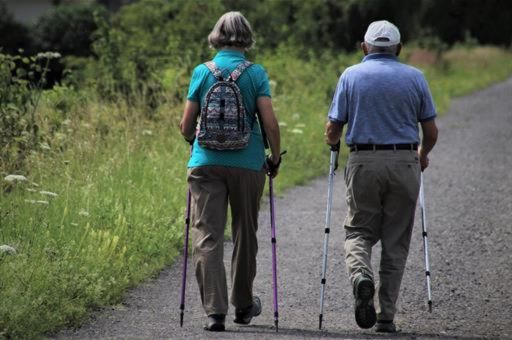
The Government revises upwards the “pension fund”, which will close the year with 9,300 million
The Social Security Reserve Fund exceeded 8.3 billion euros in September and will end 2024 with 300 million more than expected.
The Social Security Reserve Fund reached €8.356 billion on September 30, the highest level since December 2017, and is set to end the year with nearly €9.3 billion accumulated.
TDB keeps you informed. Follow us on Facebook, Twitter and Instagram
The Government revises upwards the “pension fund”, which will close the year with 9,300 million
The so-called ‘pension piggy bank’, which ended 2023 with 5,578 million euros, has so far this year received contributions worth 2,623 million euros, thanks to the Intergenerational Equity Mechanism, which came into force in 2023, to provide resources to this fund through a percentage of the contribution for common contingencies, distributed between the company and the worker with the same distribution as in social contributions.
In September alone, the Reserve Fund received allocations of 314.7 million euros, to which will be added those corresponding to the last three months of the year.
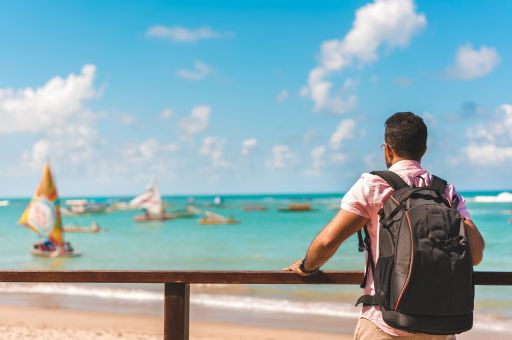
The Minister of Tourism, Culture and Sports begins with the PSIB-PSOE round of presentations on the measures of containment and tourism sustainability proposed by the Govern
Minister Bauzà met today with Iago Negueruela and Llorenç Pou of PSIB-PSOE
The Minister of Tourism, Culture and Sports, Jaume Bauzà, has received at the headquarters of the Conselleria Iago Negueruela and Llorenç Pou, representing the PSIB-PSOE parliamentary group, to begin the round of presentation of the legislative proposal of the Government of the Balearic Islands for the containment and sustainability of tourism.
TDB keeps you informed. Follow us on: Facebook, Twitter and Instagram
The Minister of Tourism, Culture and Sports begins with the PSIB-PSOE round of presentations on the measures of containment and tourism sustainability proposed by the Govern
At the end of the meeting, Minister Bauzà assured that “the spirit of the Government is to carry forward a fair, thoughtful and balanced proposal”. Bauzà also said that “now is the time to listen to everyone, to present our proposal and seek the necessary synergies to be able to approve these measures”.
Throughout this week there will be meetings with representatives of the other parliamentary groups. Counsellor Bauzà will receive on Wednesday the representatives of VOX, MÉS per Mallorca and Unidas Podem; on Thursday he will meet with MÉS per Menorca and the deputy of the Mixed Group, Llorenç Córdoba; and on Friday he will close the round of meetings with the Popular Party.

Ecological Transition grants 21 million euros in aid for digital skills in rural areas
The Minister for Ecological Transition and the Demographic Challenge, Sara Aegesen, has announced in the Senate the publication of the resolution to finance the projects of 40 local entities and non-profit associations that will train 110,000 people in rural areas.
The Vice-President and Minister for Ecological Transition and the Demographic Challenge, Sara Aagesen, has announced that the ministry she heads has published the final resolution of the line of aid for the Digital Rural Challenge Programme.
‘On this occasion, 40 local entities and non-profit associations have benefited, and in this case, these 21 million that come from the Recovery, Transformation and Resilience Plan, will allow approximately 110,000 students to have new skills in the digital environment,’ said the Vice President before the Senate’s Commission on Depopulation and Demographic Challenge.
TDB keeps you informed. Follow us on: Facebook, Twitter and Instagram
Ecological Transition grants 21 million euros in aid for digital skills in rural areas
The Rural Digital Challenge Programme seeks to promote the development of digital training initiatives for the inhabitants of rural areas, with a special focus on the most vulnerable groups in rural areas: the elderly, the unemployed and children and young people.
The aim is to promote the acquisition of basic digital skills by citizens, so that they can operate with confidence and security when communicating, getting information, carrying out formalities or solving problems in the digital environment. A programme that complements the progress made in terms of the digital divide between cities and towns, which has been reduced by 36 points since 2018.
‘The digital divide with cities has gone from 42 points in 2018 to 6 in 2024. This is a success story for the country, a necessary condition for creating opportunities in rural areas. And, with the Conéctate35 satellite coverage programme, promoted by Hispasat, rural broadband coverage is 100%. At last, rural areas have universal coverage. In just a few years this government has taken the figures from 38% to 100%’, Aagesen highlighted.
The beneficiaries of the final resolution announced by the Vice-President include 10 local entities – provincial councils – and 30 non-profit associations that will provide training in basic digital skills in rural environments and demographic priority areas and, specifically, in municipalities with a population of 5,000 inhabitants or less, or municipalities with more than 5,000 inhabitants, when the actions are carried out in smaller local entities and municipalities with more than 20,000 inhabitants with scattered population centres, as long as the actions are carried out in these centres.
The Provincial Council of Badajoz, the Fundación Universidad Empresa de la Región de Murcia, the Provincial Council of Ourense, the Provincial Council of A Coruña and the Unión de Pequeños Agricultores are some of the entities that receive the largest funding to deploy their projects, with grants of up to 750,000 euros.
The training will be provided before the second quarter of 2026, paying special attention to young people, women, the unemployed and the elderly. Thus, through the implementation of this programme, the Ministry for Ecological Transition and the Demographic Challenge expects to train a total of 110,000 students, which represents an increase of 22% over the targets set in the Recovery Plan, which includes a commitment to train 90,000 people.

The Consell de Mallorca opens the doors of its most emblematic buildings during Open House Palma
The island institution will be showing the Palau del Consell, the Llar de la Infància, the Teatro Principal and the Museum of Mallorca this weekend
The Consell de Mallorca has once again joined the Open House Palma initiative and will open the doors of four of its buildings. This Saturday and Sunday citizens will be able to visit the most emblematic buildings of the island’s institution free of charge and with a guided tour. The novelty this year is that, for the first time, it will be possible to visit the Llar de la Infància.
TDB keeps you informed. Follow us on Facebook, Twitter and Instagram
The Consell de Mallorca opens the doors of its most emblematic buildings during Open House Palma
This is the fourth edition of Open House Palma, whose motto this year is ‘La ciutat per a qui l’habita’ (The city for those who live in it). In addition to the Llar de la Infància, the island institution will be opening the Palau del Consell, the Teatro Principal de Palma and the Museum of Mallorca. There is no need to register in advance for the visits; it is a free-access space. Once there, the volunteers will indicate the approximate waiting time for the visit.
The Palau del Consell de Mallorca and the Llar de la Infància will be open on Sundays from 10 am to 2 pm and from 4 pm to 7 pm. Palma’s Teatro Principal can be visited on Saturday from 10 am to 2 pm, and the Museum of Mallorca will also be open on Saturday from 4 pm to 7 pm.
307 million euros in European aid awarded to 381 local authorities to renovate public buildings
The Ministry of Transport, Mobility and Urban Agenda (Mitma) has provisionally awarded these ‘Pirep local’ grants, which will directly benefit some 16 million citizens.
The Ministry of Transport, Mobility and Urban Agenda (Mitma) has provisionally granted 307 million euros of European recovery funds to 381 local authorities in all provinces for the rehabilitation of public buildings owned by them.
TDB keeps you informed. Follow us on Facebook, Twitter and Instagram.
The Mitma’s electronic headquarters has published this provisional resolution of the call in competitive concurrence of Line 1 of the Programme to Promote the Rehabilitation of Public Buildings (Pirep local) included in the Recovery, Transformation and Resilience Plan (PRTR).
In total, Mitma has selected 405 actions out of the 1,065 presented by the potential beneficiaries of the programme: municipalities, provincial councils, councils and island councils. At this point, it is worth remembering that municipalities with more than 50,000 inhabitants and provincial capitals could submit two applications, so there are 24 municipalities that have obtained funding for two rehabilitation projects.
Even so, the municipalities with less than 50,000 inhabitants are of particular relevance in the provisional resolution, with 321 projects awarded, which are entitled to aid of some 186 million euros, with an average subsidy per application of 579,531 euros. Of these 321 projects, 172 are in municipalities with less than 5,000 inhabitants, the so-called demographic challenge municipalities.
After the publication of the list, the selected local entities will have a period of 10 days to expressly accept the grants, before the final resolution is published.

The Government approves the fifth payment of 2024 housing rental aid, reaching €7.4 million for more than 3,100 beneficiaries
All information about these grants can be found at ajudeslloguer.caib.es
The Ministry of Housing, Territory and Mobility of the Government, through the Directorate General of Housing and Architecture, has approved the fifth payment of the 2024 housing rental aid program, amounting to nearly €1.7 million for 715 beneficiaries.
The payment resolution was published this Tuesday in the BOIB (Official Gazette of the Balearic Islands), and all details of these grants can now be consulted on the website ajudeslloguer.caib.es.
TDB keeps you informed. Follow us on: Facebook, Twitter and Instagram
The Government approves the fifth payment of 2024 housing rental aid, reaching €7.4 million for more than 3,100 beneficiaries
With this fifth payment resolution for the 2024 aid program, a total of €7.4 million has been disbursed so far to 3,133 beneficiaries.
Regarding the distribution by island, of the total 2024 aid granted:
- 2,259 beneficiaries in Mallorca, amounting to €5.3 million;
- 586 in Menorca, exceeding €1.3 million;
- 240 in Ibiza, nearly €640,000; and
- 48 beneficiaries in Formentera, totalling around €118,000.
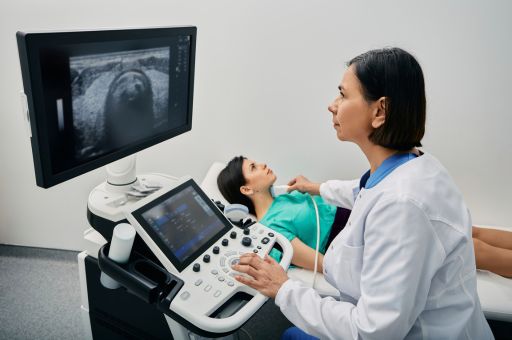
Primary Care has trained more than six hundred professionals in clinical ultrasound in the Balearic Islands
The Balearic Islands are pioneers in the implementation of ultrasound scanners in primary care health centres
Throughout 2024, Primary Care has trained a total of 618 professionals: 424 doctors, 124 nurses, 50 physiotherapists and 20 paediatricians in the Balearic Islands in the programme for the implementation of clinical ultrasound in health centres. The Balearic Islands have also been the first autonomous community to train all resident doctors in basic clinical ultrasound in 2021.
The First Conference on Clinical Ultrasound in Primary Care (ECO-APIB) in the Balearic Islands took place today at the Hospital Comarcal de Inca. This conference aims to explore advances in ultrasound in primary care with a programme divided into different workshops with practical training in ultrasound aimed at health professionals (and residents) in medicine, paediatrics, nursing and physiotherapy in the Balearic Islands.
The conference, which is attended by over one hundred participants, features thirty workshops and eight national speakers who are experts in ultrasound. Some of the presentations focus on the usefulness of ultrasound in emergencies or in the evaluation of rheumatological diseases, among others. Clinical ultrasound has established itself as a tool of excellence and a complementary diagnostic tool. It represents an important reinforcement in the capacity to make decisions, providing added value to the quality of healthcare activity.
TDB keeps you informed. Follow us on Facebook, Twitter and Instagram
Primary Care has trained more than six hundred professionals in clinical ultrasound in the Balearic Islands
Primary Care in Majorca, pioneer in the use of clinical ultrasound
Ultrasound scanners are becoming a very useful tool in health centres to achieve a better approach to diagnosis. In no case do they replace anamnesis or examination; they are an extension of the physical examination, which facilitates diagnosis, treatment, follow-up and prioritised referral in practically all clinical scenarios.
The Primary Care Management of Mallorca has been a pioneer in the commitment to implement clinical ultrasound in health centres. In fact, it began in 2019 and since then has made significant progress in different aspects throughout the Balearic Islands: investment in the provision of ultrasound scanners for all health centres, investment in ongoing training in clinical ultrasound for primary care professionals (with courses, on-site workshops and eco coach), and the creation of the Balearic Islands Primary Care Clinical Ultrasound Classroom (ECO-APIB), with ultrasound stations and training spaces. The Clinical Ultrasound Technical Commission has also been created in the Technical Office of Primary Care in Mallorca.
The ECO-APIB Illes Balears classroom has seven ultrasound stations and a teaching team made up of 18 doctors, 3 paediatricians, 3 nurses and 1 physiotherapist. Training in clinical ultrasound has been expanding year after year: basic, advanced, hepatobiliary-pancreatic, thoracic and pulmonary, echocardoscopy, urology, emergency care, paediatrics, vascular, thyroid, renal, musculoskeletal, etc.

The number of foreign affiliates increased by 15,804 employed persons in February, of which 4,204 were self-employed
They account for 13.8% of the total number of Social Security contributors, six-tenths of a percentage point more than last year. Since the implementation of the labour reform, 44.1% of the employment created in the last three years has been by foreign workers.
Social Security registered 2,971,811 foreign affiliates in February, after discounting seasonality and the calendar effect, after adding 15,804 employed persons. Over the last twelve months, the number of people employed from other countries has increased by 7.6%. This is a new high in seasonally adjusted foreign employment, in line with the trend that has been maintained throughout 2024.
The number of foreign affiliates increased by 15,804 employed persons in February, of which 4,204 were self-employed
TDB keeps you informed. Follow us on: Facebook, Twitter and Instagram
Since the implementation of the labour reform in 2022, the system has seen an increase of 604,592 workers from other countries, i.e. an increase of 26.6%. This means that 44.1% of the employment created in these last three years corresponds to foreign workers.
In the context of overall enrolment, foreign workers account for 13.8% of the total number of employed, six-tenths more than a year ago.
Average enrolment
In average terms and without seasonal adjustment, i.e. in the original series, Social Security registered 2,874,398 affiliates from other countries, 202,851 more in the last year and 31,369 more than in January.
This is the highest number of total foreign contributors to Social Security, both in the original series and seasonally adjusted for February.
Self-employed workers
With regard to the distribution by regimes, the increase in self-employed workers from other countries is worth noting. In the last month alone, there has been an increase of 4,204 foreign workers in the Special Regime for Self-Employed Workers (RETA).
In February, foreign workers accounted for 90% of the rate of increase in the RETA over the last year (1.1% of the 1.2% of the total). Specifically, there are 471,559 workers registered in this special regime, an increase of 8.2% in year-on-year terms, and they represent 16.4% of the total number of self-employed workers in Spain.
The increase in the number of foreign self-employed in the last year has been particularly pronounced in the Information and communications sector, which has grown by 34.5%. Also of note is Professional, Scientific and Technical Activities, which has seen a 17.3% increase in the number of self-employed workers.
General Scheme
In line with the situation of native workers, 83.4% of foreign affiliates were enrolled in the General Social Security Scheme, reaching 2,398,066 workers.
In the last 12 months, foreign enrolment in this scheme has grown by around 7.5%, and in seven sectors in particular: Transport and Storage (24.9%), Water Supply (11.9%), Administrative Activities (9.7%), Health Activities (9.6%), Construction (9.4%), Manufacturing Industry (9.3%) and Accommodation (9.10%).
The year-on-year growth in foreign enrolment is also very notable in high value-added activities, with notable growth in Financial Activities (9%), Professional, Scientific and Technical Activities (7.6%) and Information and Communications, which increased by 7%.
The distribution by sector in both the General Regime and the Self-Employed Workers’ Regime shows a growing diversification.
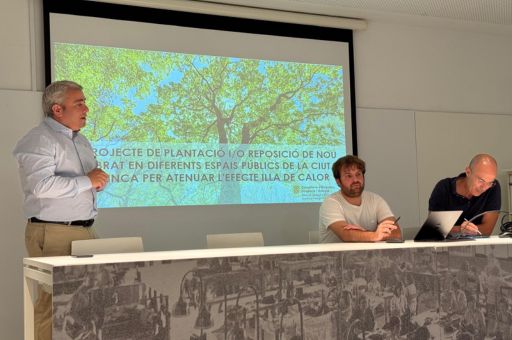
Inca will improve the city’s street furniture to mitigate the heatwave effect
Inca City Council is promoting a project to plant and replace new trees in different public spaces in the city to mitigate the heatwave effect. Thus, the corresponding tenders have already been launched and it is expected that at the beginning of next year work will begin in the different areas and, progressively, work will be carried out in the affected streets. At the same time, an information session was also held to explain the details of the project and all the initiatives that will be carried out over the next few months to the citizens of the town.
TDB keeps you informed. Follow us on Facebook, Twitter and Instagram
Inca will improve the city’s street furniture to mitigate the heatwave effect
‘The tree planting plays a fundamental role in the environmental quality of the city. That is why we have promoted this project to make a decisive contribution to improving the management and use of urban green infrastructure. The regulation of the temperature or the capture of pollutants are some of the positive effects of the trees that directly affect people’s health’, explains the mayor of Inca, Virgilio Moreno.
Thus, the general objectives of this project are to improve green infrastructures and link them to the natural context, to increase resilience in the face of climate change and to guarantee the quality and accessibility of public spaces. Likewise, these actions will also help to lower the city’s temperature, reduce solar radiation during the hottest months, increase CO2 capture and oxygen production, reduce pollution (O3, CO, NO2, PM2.5, PM10, SO2), increase carbon capture, reduce pollution (O3, CO, NO2, PM2.5, PM10, SO2), increase carbon sequestration, reduce pollution and increase infiltration.
The specific areas of action of this project are Carrer Marjades, Carrer Josep Barberí, Carrer Joan Miro, Carrer Sor Clara Andreu, Carrer Joan d’Àustria, Avinguda Jaume I and Avinguda Jaume II. The work being carried out as part of this project includes increasing the tree cover on the streets, removing trees in poor condition or that interfere with services, buildings or installations, increasing the permeable area of the scarcely accessible area and improving pedestrian walkways to improve accessibility, among other things.
This project is co-financed by the Conselleria d’Empresa, Ocupació i Energia within the framework of the public call for subsidies to local entities for actions to adapt to climate change in urban and peri-urban areas. The subsidised amount is 300,000 euros.
Carla Beltrán Campomar
Carla is a student of the Second Baccalaureate at IES Binissalem. Since she was a child, she has shown great admiration for the media. So much so that in the future, she would like to become a reporter. Despite her little experience in the world of journalism due to her young age, her passion for exhibiting her personal work to the public has led her to participate in numerous dance competitions, plays, concerts and the occasional appearance on the provincial television of the Balearic Islands (IB3) and on the municipal television of Palos de la Frontera, Huelva (TCD).


